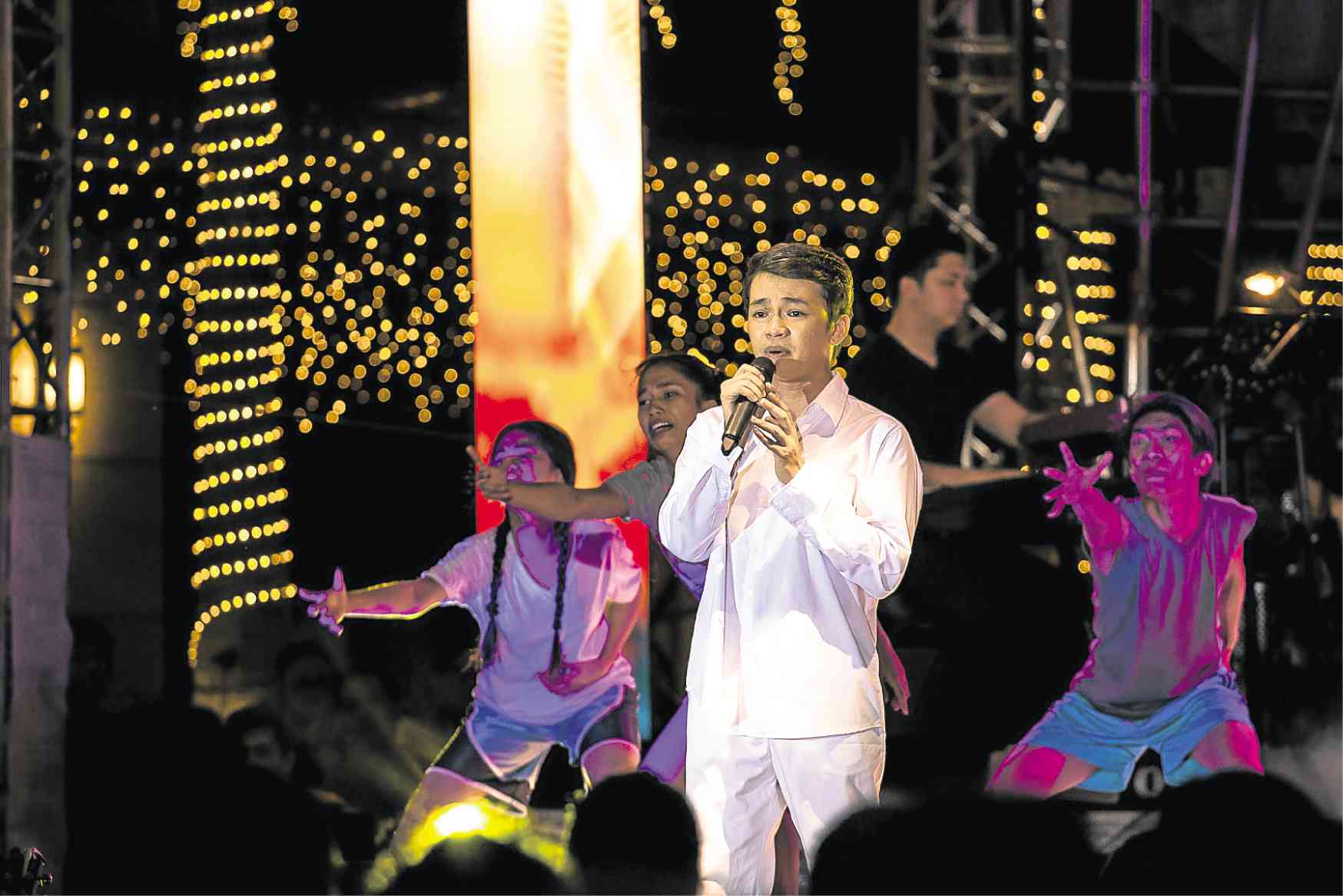In its first few seconds, the song “Nanay, Tatay” by the young composer Chud Festejo sounds like it’s going to be an upbeat novelty tune about the innocence of youth. But soon, haunting instrumentation comes in. And as it wears on, it becomes increasingly apparent that the cheery game chant it samples is but a mere mask for the sobering subject it tackles.
“Nanay, Tatay,” the winning entry of the recent PhilPop songwriting competition, is in fact, about street children and their vulnerability to society’s harm; how they go from chasing cars for alms, to being chased by patrol cars. “Dati ay tumbang preso/Ngayon ay batang preso,” a line goes.
“As I was writing the verses, I wondered about the reasons children beg on the streets. Is it because of easy money? Why are they not in school? From that point, the story just flowed,” he told the Inquirer in a recent e-mail interview. “It took maybe two weeks to finish the song, with news and online posts providing additional inspirations.”
Chud, who hails from Davao City and bested nine other songwriters in the contest’s grand finals last year, said it was a deliberate decision to juxtapose a popular playtime song with grim social realities.
“At times, kids would sing while playing by themselves. They sing about the things they hear or see … social situations. At first, it sounds cute or playful, but then it starts to get a bit disturbing once the words sink in. You wonder how, why they came up with that,” he related.
As the winner, Chud took home a cash prize worth P1 million cash. The music video for “Nanay, Tatay”—directed by Ryan Evangelista—was also hailed the best among the lot.
Festejo (center) with Ryan Cayabyab (second from left), Noel Cabangon (second from right) and other PhilPop board members
Excerpts from the Inquirer’s interview with Chud:
Is “Nanay, Tatay” reflective of your style as a songwriter?
I have written a few songs that tackle social situations, some of which from a kid’s perspective—as a victim or maybe just an observer. I like sounds that feel sad, scary.
I want to write songs that tell stories that aren’t always talked about in songs—at least not that often in pop music.
Tell us more about your background in music. I grew up in a music-loving family, which sang karaoke almost weekly. I listened to 1990s pop, teleserye songs, even Disney music. In college, I joined an emo and posthardcore band.
I just tried writing a song about random things one day. And then it just continued.
In 2015, I tried auditioning for Elements Singing-Songwriting Camp. I got in, and was even voted by my cocampers as the best male songwriter of our batch. That camp lit that tiny spark in me. It made me realize that you don’t really have to go mainstream or be molded into something that other people want to sell; and that I’m quite fine as I am as an artist.
What does winning PhilPop mean to you? More than winning P1 million, it’s about my song being recognized or being an inspiration to others, especially those who are starting either late or early.
What are your thoughts on PhilPop being more inclusive of songwriters from different regions in the country? This is big not only for me, but for everyone outside Metro Manila—especially those who craft songs in their own style or sound and do not think about a formula or a pattern.
“Phil” means the Philippines, so I guess it should include everyone and everything that’s Pinoy.
What is it about the music scene in Davao that you want more people to know about? That there are original artists with original songs, their own styles and sounds, and their own stories to tell through music. That different genres exist (Not just budots!).
